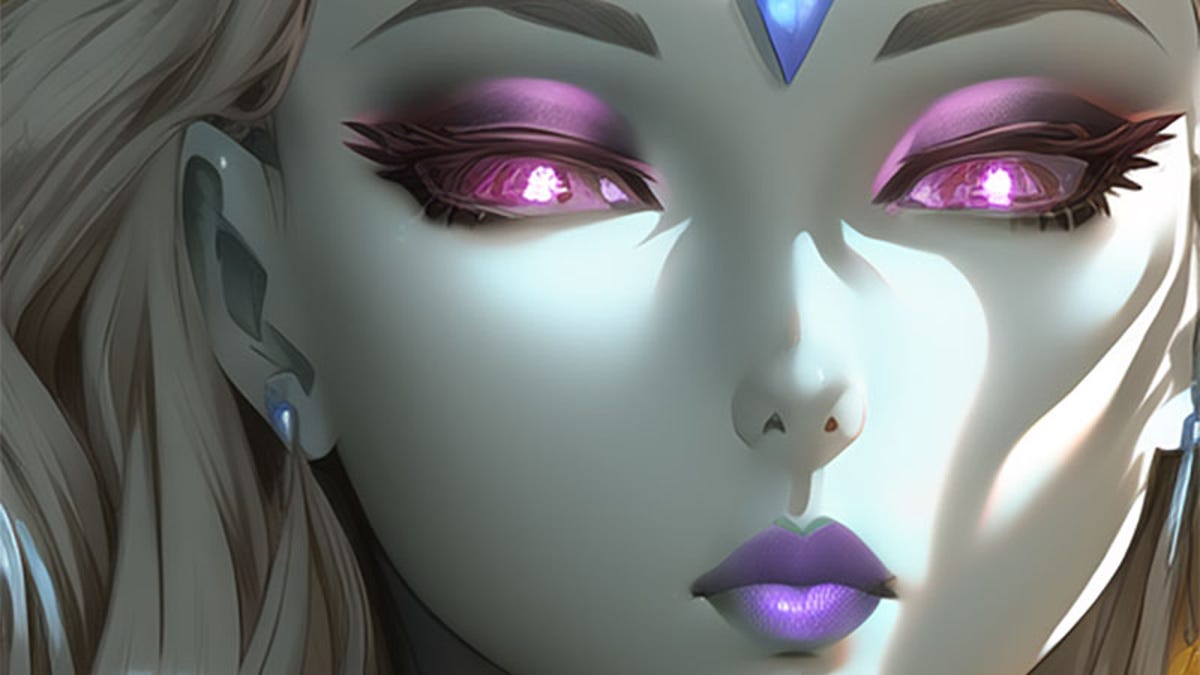![Image for article titled Kickstarter Suspends AI-Generated Image (Well, Porn) Project [Update]](https://i.kinja-img.com/gawker-media/image/upload/c_fill)
Until today, there had been an active Kickstarter campaign running for Unstable Diffusion, a project describing themselves as “a group born out of a grassroots community effort to reject the limiting rules of corporate AI companies”.
The campaign, which had comfortably passed its initial funding goals, said its pitch was:
This is to fund the development of open-source, community first, AI models that will achieve the dream of a billion people exploring and creating art with nothing but their imagination. This revolution in human expression will be equivalent to the invention of the printing press, or of the internet. AI that allows for anyone to make art.
While the Kickstarter campaign uses a lot of very careful language so as not to spell out its actual intentions, you can read between the lines in sentences like the team lamenting that “the last company releasing open-source AI image models has succumbed to investor pressure and released a heavily neutered version of their previous model”, and that their ethics guidelines say they “plan to exclude all children from our datasets in order to eliminate the possibility of abuse using our API”.
Basically, as TechCrunch report, these guys are frustrated that existing AI-generated image models don’t make good porn, and so they want to build a community to help them do a better job. Now, I’m not here to poo-poo anyone’s kinks or desires for online content, we’re all adults here and everyone has their own stuff they’re into.
G/O Media may get a commission
But porn or not, this is still AI-generated imagery, and given the protests currently going on at ArtStation, and with the wider controversy surrounding the field in general, Unstable Diffusion landed at the right time to be the campaign to get Kickstarter looking at their own policies on the matter.
The crowd-funding platform are yet to release firm guidelines, saying “we’re sometimes navigating some really tricky and undefined areas”, but the company did release a statement suggesting that they will, for now at least, “on the side of creative work and the humans behind that work”.
Here’s that statement in full:
I want to share some of our thoughts on Artificial Intelligence (AI) generated images and AI art as it develops, because many creators on Kickstarter are understandably concerned about its impact on the creative community.
At Kickstarter, we often have projects that are innovative and push the boundaries of what’s possible. And that means we’re sometimes navigating some really tricky and undefined areas.
Over the last several days, we’ve engaged our Community Advisory Council and we’ve read your feedback to us via our team and social media. And one thing is clear: Kickstarter must, and will always be, on the side of creative work and the humans behind that work. We’re here to help creative work thrive.
As we look at what’s happening in the creative ecosystem and on our platform, here are some of the things we’re considering when it comes to what place AI image generation software and AI-generated art should have on Kickstarter, if any:
– Is a project copying or mimicking an artist’s work? We must consider not only if a work has a straightforward copyright claim, but also evaluate situations where it’s not so clear — where images that are owned or created by others might not be on a Kickstarter project page, but are in the training data that makes the AI software used in the project, without the knowledge, attribution, or consent of creators.
– Does a project exploit a particular community or put anyone at risk of harm? We have to consider the intention behind projects, sometimes beyond their purpose as stated on our platform. Our rules prohibit projects that promote discrimination, bigotry, or intolerance towards marginalized groups, and we often make decisions to protect the health and integrity of Kickstarter.
This tech is really new, and we don’t have all the answers. The decisions we make now might not be the ones we make in the future, so we want this to be an ongoing conversation with all of you. You can share your thoughts by writing to suggestions@kickstarter.com as we continue to develop our approach to the use of AI software and images on our platform.
That statement was released at the same time Unstable Diffusion’s campaign was suspended (with all backers refunded). It’s important to note that while this post is mostly about the general idea of AI-generated imagery, the mentions of harm appear to be addressing specific criticisms of Unstable Diffusion:
UPDATE 11:15pm ET: Unstable Diffusion have issued a statement, which reads:
While Kickstarter’s capitulation to a loud subset of artists disappoints us, we and our supporters will not back down from defending the freedom to create. We have updated our new website, to allow our supporters to directly contribute to the creation and release of new artistic AI systems more powerful than ever. We are rising to the call to defend against the artists lobbying to make all AI art illegal, and backers support will allow us to challenge this increasingly well-funded and organized lobby.

